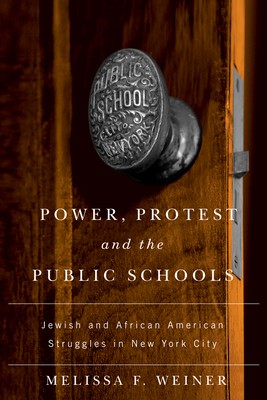
- We will send in 10–14 business days.
- Author: Melissa Weiner
- Publisher: Rutgers University Press
- ISBN-10: 0813547725
- ISBN-13: 9780813547725
- Format: 15.2 x 22.9 x 1.9 cm, hardcover
- Language: English
- SAVE -10% with code: EXTRA
Reviews
Description
Accounts of Jewish immigrants usually describe the role of education in helping youngsters earn a higher social position than their parents. Melissa F. Weiner argues that New York City schools did not serve as pathways to mobility for Jewish or African American students. Instead, at different points in the city's history, politicians and administrators erected similar racial barriers to social advancement by marginalizing and denying resources that other students enjoyed. Power, Protest, and the Public Schools explores how activists, particularly parents and children, responded to inequality; the short-term effects of their involvement; and the long-term benefits that would spearhead future activism. Weiner concludes by considering how today's Hispanic and Arab children face similar inequalities within public schools.
EXTRA 10 % discount with code: EXTRA
The promotion ends in 17d.12:12:34
The discount code is valid when purchasing from 10 €. Discounts do not stack.
- Author: Melissa Weiner
- Publisher: Rutgers University Press
- ISBN-10: 0813547725
- ISBN-13: 9780813547725
- Format: 15.2 x 22.9 x 1.9 cm, hardcover
- Language: English English
Accounts of Jewish immigrants usually describe the role of education in helping youngsters earn a higher social position than their parents. Melissa F. Weiner argues that New York City schools did not serve as pathways to mobility for Jewish or African American students. Instead, at different points in the city's history, politicians and administrators erected similar racial barriers to social advancement by marginalizing and denying resources that other students enjoyed. Power, Protest, and the Public Schools explores how activists, particularly parents and children, responded to inequality; the short-term effects of their involvement; and the long-term benefits that would spearhead future activism. Weiner concludes by considering how today's Hispanic and Arab children face similar inequalities within public schools.


Reviews